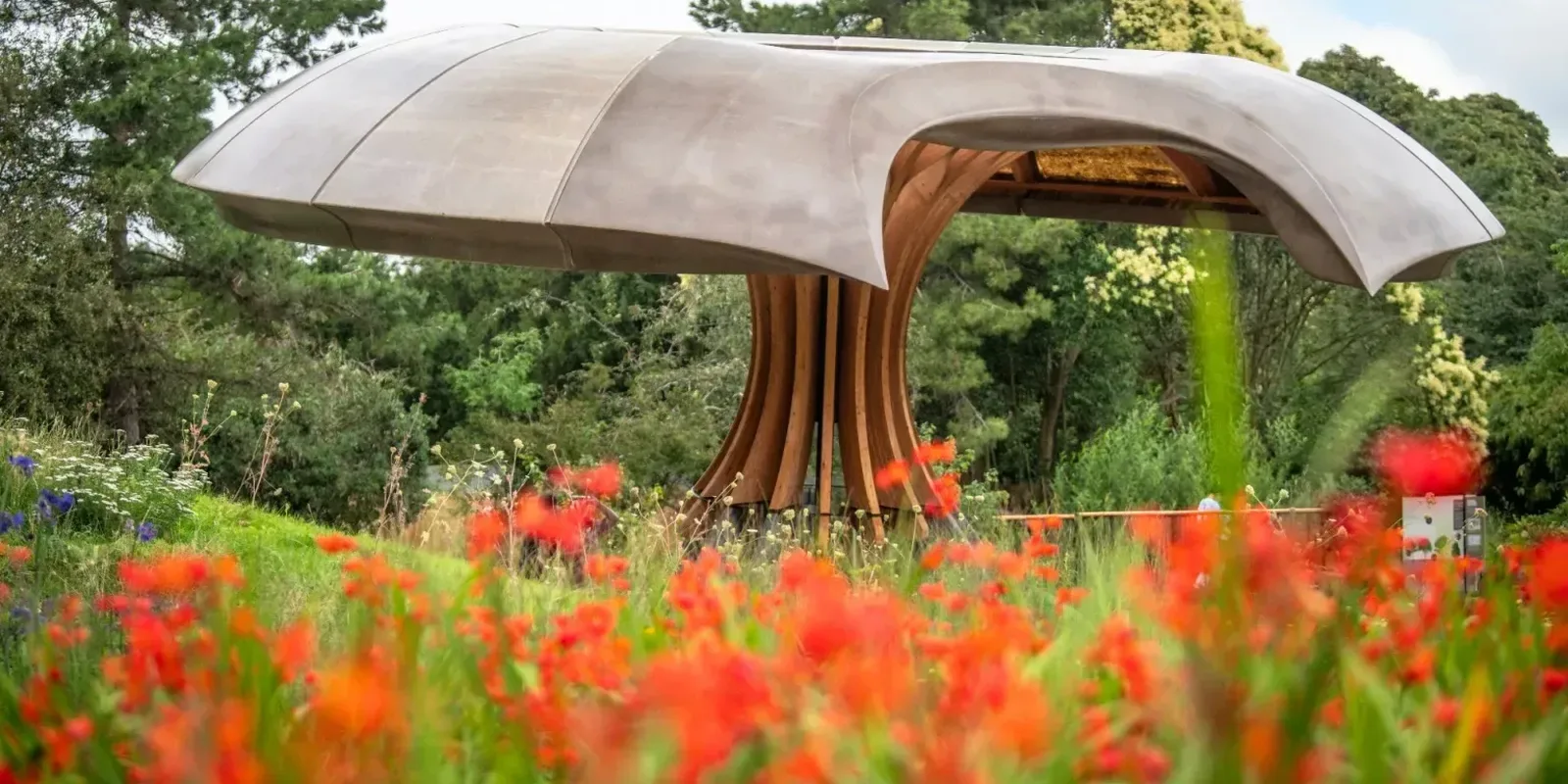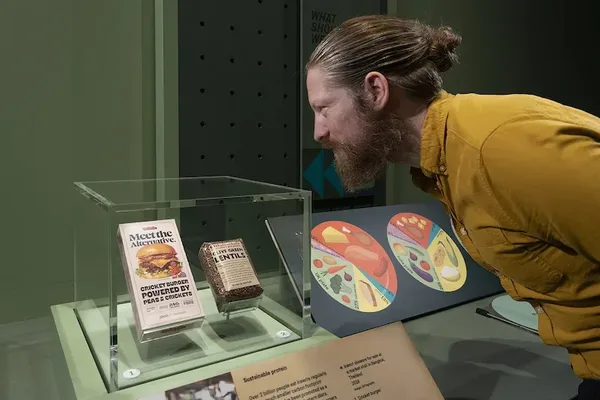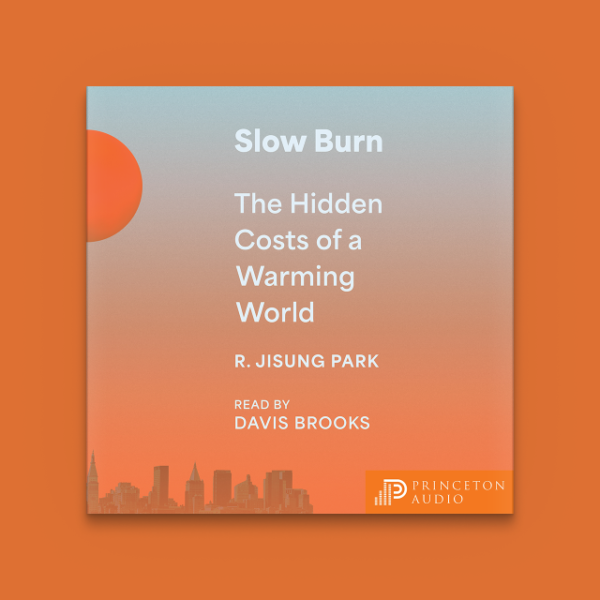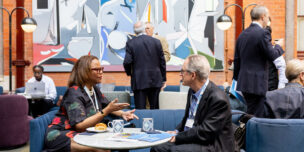Accelerator recommendations: inspiration for the summer break
In this article, we're providing some recommendations to keep you busy this summer. From books for the beach to exhibitions for bank holidays, here are eight interesting things to check out.

The Carbon Garden at Kew Gardens. Source: Ines Stewart-Davidson via Kew Gardens
Since launching The Rift in April, we’ve been busy hitting the books – seeking out interesting and useful insights for sustainable futures across culture, science and academia to inform and inspire our work. From plays to books, and films to exhibitions, we've been energised by the richness and variation of resources engaging with our current reality.
With August almost upon us, the Accelerator team are gearing up for our summer holidays. But before we set off on our trips, we thought we’d give you some recommendations to keep you busy this summer...
To Visit
Carbon Garden - Kew Gardens
If you’re in the UK and looking for a climate themed day out, head over to Carbon Garden | Kew. The garden represents the latest in Kew’s imaginative, ongoing engagement with the climate crisis. Deceptively deep in both thought and execution, the garden digs into the interconnected climate impacts and regenerative beauty of nature, whilst also celebrating the role of human ingenuity in stewarding us back to more sustainable ways of making and being. Pair with strawberries and cream for the perfect day out.
The Future of Food - London Science Museum
If you fancy a fun and imaginative primer on the future of food, The London Science Museum is hosting a multisensory, interactive, free (!) exhibition throughout summer about food on a changing planet. With examples of how a range of communities across the globe are embracing sustainable food strategies, explorations into the role of biotech in the production of food, and a range of interactive experiences, the exhibition offers something for everyone.

The Future of Food exhibition at the London Science Museum. Source: Science Museum Group
To Watch
The End We Start From - Directed by Mahalia Belo
This came out last year, but if you haven’t watched it already, we highly recommend this film. Jodie Comer plays a mother navigating the impacts of a major flooding event across the UK, with her newborn baby.
Connected to our work on facing the reality of a post 1.5 degree world, this thought-provoking and emotive film considers, when the inevitable climate impacts come, how can we stay resilient? How do we pick up the pieces and build something better?
Till the Stars Come Down - Beth Steel
This National Theatre production is having a short run in the West End over the summer. The story follows a family on the day of the daughter's wedding to a polish migrant. Although there are lots of laughs along the way, it turns into more of a greek tragedy than bawdy celebration.
It’s a play about more than just a wedding; it explores the former red-wall communities that feel left behind in modern society and their attitudes towards migration. Whilst not as closely connected to the Rift as some of our other suggestions, it sets an important backdrop to many of the discussions we’re having.
It raises questions of how to support these communities as we navigate the forthcoming climate impacts (especially a rise in migration) and how our efforts can build a better, more resilient and inclusive society.

Till the Stars Come Down. Source: Manuel Harlan via Till the Stars Come Down
To Read
Lifehouse - Adam Greenfield
If you’re looking to catch up on the latest climate action you can do worse than pick up a copy of Adam Greenfield’s Lifehouse. Beginning with a comprehensive summary of current climate risks and impacts, the book evolves into a considered exploration of how new forms of shared assets and services can foster societal resilience. A key example in the growing literature exploring transformative adaptation.
Dreams Must Explain Themselves - Urusla Le Guin
If climate risk is your day job and you’re looking for a break, you might pick up the collected non-fiction essays of Ursula Le Guin. Alongside her rightly lauded essay 'a carrier bag theory of fiction' (much better than it sounds), this influential collection meditates in various ways on our relationship to the earth and each other – from reflections on the leadership style of Ernest Shackleton to 'non-Euclidian views' of 1970s California.
Parable of the Talents - Octavia E. Butler
Parable of the Talents is the sequel to Parable of the Sower by Octavia Butler, which we would recommend reading first. The sequel is a post-apocalyptic story, where we return to the protagonist Lauren whose life is upended in unexpected ways. The story is told from the perspective of Lauren and her daughter as they navigate paradoxically dark but hopeful themes around community, religion, political unrest, and hope. The story that Butler tells will feel familiar for readers, as the socio-political climate resembles that of the United States and evokes strong emotions about the contentious times that we are in.
Slow Burn - Robert Jisung Park
Over the past few weeks, we've been dipping in and out of Slow Burn by Robert Ji-Sung Park. The book attempts to expose ‘the hidden costs of a warming world’ – and it does just that in a digestible, and deeply interesting way, reframing the climate crisis from a dramatic future collapse to a subtler, pervasive present untangling. Perfect for those interested in our collapse strand of research - a light introduction to a fascinating topic.

Slow Burn by Robert Jisung Park. Source: Princeton University Press
So there you have it, eight of our favourites which hopefully provide sufficient material to keep you busy and mentally stimulated this August.
If you enjoyed these recommendations, sign up to our newsletter where we provide a Sustainability Accelerator recommendation every month.





